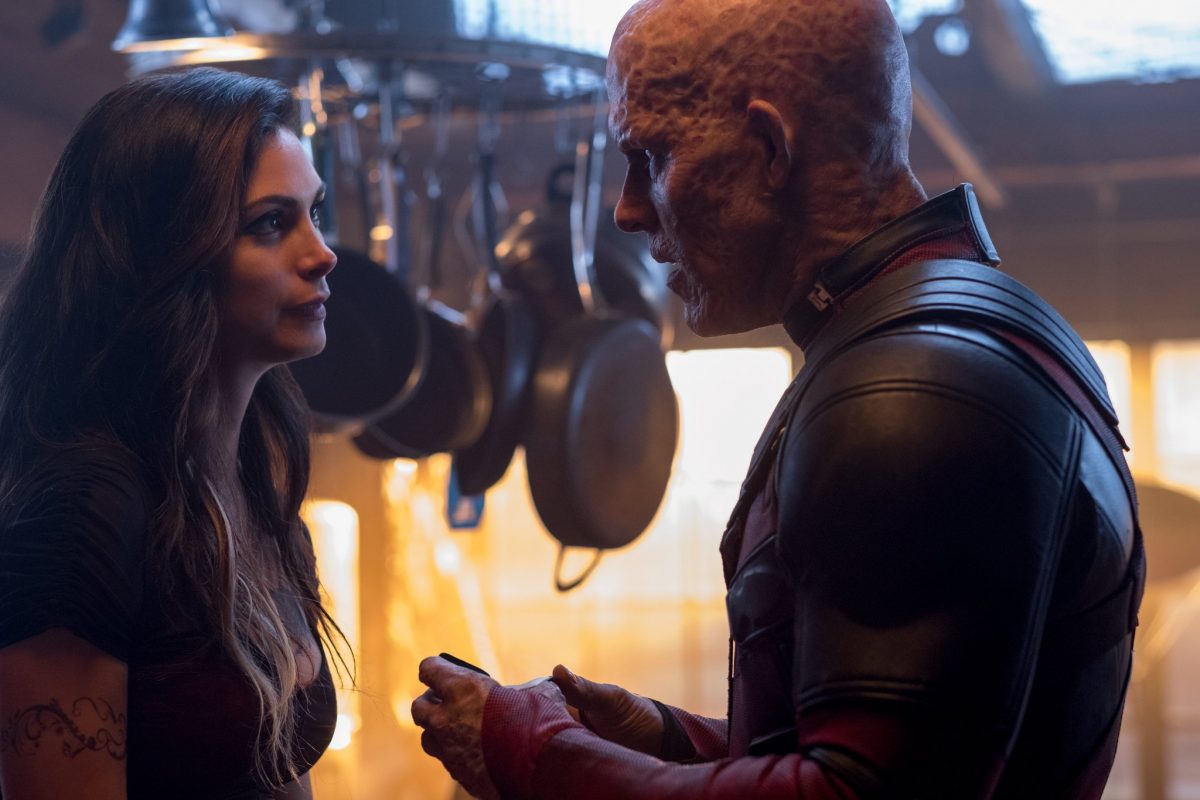Deadpool 2‘s Director and Writers Respond to Complaints About Vanessa’s Storyline
Spoiler alert because obviously.

**Spoiler Alert: This article discusses plot points in Deadpool 2, but you knew that, yeah?**
While Deadpool 2 opened to commercial success and great reviews, Vanessa’s storyline in the sequel continues to rankle many viewers. We’ve spoken at length about Vanessa’s fridging and subsequent thawing in the end credits sequence of the film, as well as the pervasive lack of female roles in popular movie sequels.
Now, Deadpool 2‘s director, David Leitch, has spoken out about the choice to kill fan-favorite Vanessa:
“I understand where they’re coming from. As a filmmaker, I believe I have a record of strong female characters and proactive female characters. “But with Deadpool it’s different. It’s Deadpool’s movie, and you need to take everything away from him to humanize him. He can be grating and he can be sort of offensive and he can be all these things, but you need an emotional hook that grounds the movie that we can go on this journey with this character and experience Deadpool.”
Leitch does indeed have a record of proactive female characters, most notably in his film Atomic Blonde, in which Charlize Theron plays an ass-kicking secret agent. Leitch also co-directed John Wick, which gave us Adrianne Palicki’s highly lethal assassin Ms. Perkins. Leitch continued, saying:
“And quite frankly, she doesn’t leave the movie. She is a huge point of contact for him and learning his lesson in the world and learning that one of act of kindness can change history. And I think without her being the vehicle that he learns that from, I don’t know, it wouldn’t have been the same film and so we wouldn’t have had that emotional context. Even the scene at the end where they visit each other in the afterlife, hugely emotional, great performances by both of them. So, again, I don’t think she left the movie.”
Deadpool 2‘s writers, Rhett Reese and Paul Wernick, also weighed in on the narrative choice, saying “I do think that Vanessa was a little bit of the emotional underpinning of the movie and helped inform Julian’s, the depth of Deadpool’s feelings for Firefist and for the back and forth he has with Cable because they both lost a significant other.”
I really want to give Leitch the benefit of the doubt, seeing as he gave of one of cinema’s most glorious bisexual badasses in Lorraine Broughton, but he literally uses the definition of fridging to explain why they killed Vanessa. Yes, taking away the people Wade Wilson loves give him pathos and poignancy, but at what cost? Just because you hang a lantern on a flaw, or add a post-credits un-do button, does not undo the effect of Vanessa’s absence on the film.
This speaks to larger problem of “the girl” in comic book movies. Most of the time, “the girl” is an unattainable goal or prize, and the first film in a comic book franchise sees our hero wooing and winning over the girl in the end (see Pepper Potts, Jane Foster, Mary Jane, etc.) But where do you go from there? There are more stories to tell beyond Boy gets Girl, Boy loses Girl. Those are the stories we’d like to see.
(via ComicBook.com, image: 20th Century FOX)
Want more stories like this? Become a subscriber and support the site!
—The Mary Sue has a strict comment policy that forbids, but is not limited to, personal insults toward anyone, hate speech, and trolling.—
Have a tip we should know? tips@themarysue.com